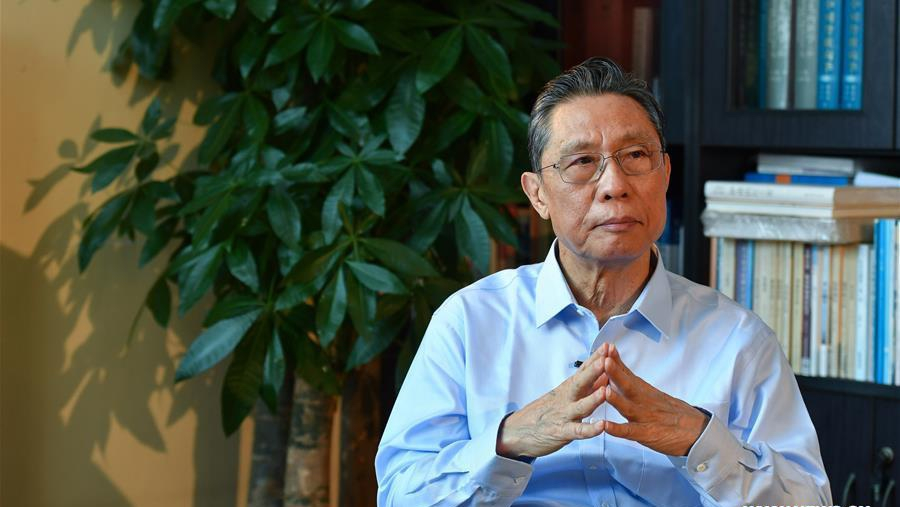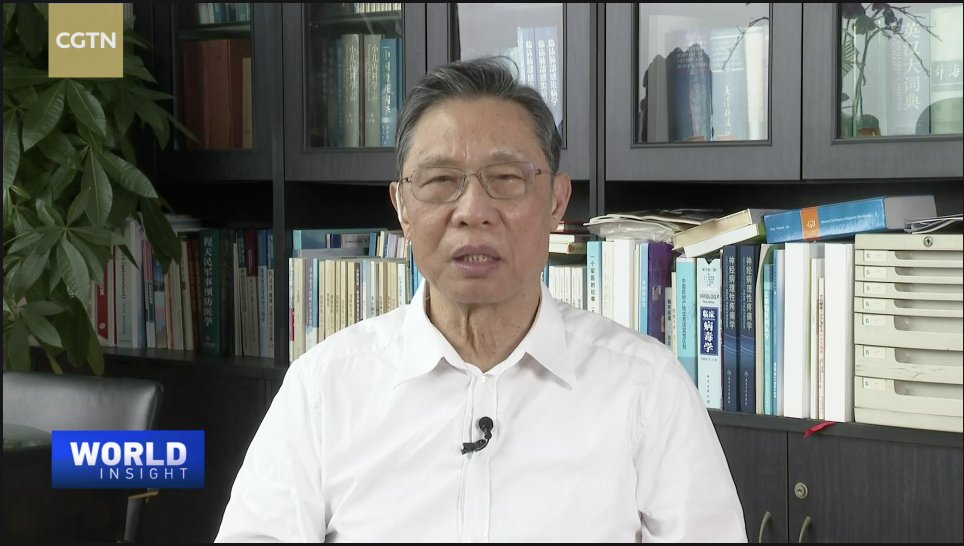01:46

A look at the current global spread of COVID-19 gives a grim picture of the situation as the number of infections has kept shooting up around the world in recent weeks especially in Europe and America.
In contrast, China, where the disease was first reported, has gradually got back on its feet after two months of hard battle against the epidemic.
CGTN's Senior Correspondent Tian Wei talked to Dr. Zhong Nanshan, a top epidemiologist in the country, about what lessons China could offer to countries that are currently struggling to bring the outbreak under control.
Zhong discovered the SARS coronavirus back in 2003 and played an important role in the country's fight against the epidemic as a leading scientist. He is seen as one of the most respectable and trusted figures during China's current battle against COVID-19 and serves as an adviser to the government in managing the crisis.
During the discussion, he explained that there were two strategies to cope with the COVID-19 outbreak - suppression and mitigation. While the mitigation strategy means putting interventions in place to slow the spread of the virus in communities, it is less intensive and rigorous compared to the suppression strategy.
Zhong said China has adopted the strategy of suppression since late January as it has implemented very strict measures to cope with the outbreak.
Apart from locking down cities, he said another way of implementing the strategy was to use an "interagency mechanism." To better illustrate this mechanism, he talked about a few "earlys" - early protection, early detection, early diagnosis and early isolation, which require people to avoid going out or gathering, reduce social contacts as much as possible, get early diagnosis and isolate cases who are infected.
"The core is 'distancing,'" he emphasized.
01:38

Zhong believes similar measures would also work in other countries currently battling the pandemic. However, he pointed out that locking down cities or cutting off transportation between countries and cities would not guarantee to stem the spread of the virus. He cautioned that even if cities are locked down, as is the case in some countries, if people still go out and gather within cities, the risks of transmission are still high. He said that Japan is following the rule of social distancing as well and has also seen the rise of cases stabilized.
When asked about any suggestions he would make to the U.S. leading epidemiologist Dr. Anthony Fauci, Zhong believes that Fauci will agree with his view. "The best way to do this is 'isolation,'" he said.
Currently the U.S. has registered the most novel coronavirus cases in the world. Compared with China's situation where cases were mostly concentrated in Hubei Province, Zhong said many states across America are now dealing with outbreaks of different scales, which may make the country's containment efforts more difficult. He said in China's case, one month after China put a lockdown on Hubei and most importantly its capital city Wuhan, coronavirus cases in other parts of China came down significantly. And this has made China's later battle against COVID-19 outside Hubei easier and also proved that putting restrictions on traffic in and out of Hubei has worked.
World Insight with Tian Wei is an international debate/in-depth interview program facilitated by host Tian Wei. People in the know, be they global leaders or emerging change-makers, all provide their insights on this unique global platform.
Schedule: Monday-Saturday
Time (GMT): 1415, 2015
(If you want to contribute and have specific expertise, please contact us at opinions@cgtn.com.)